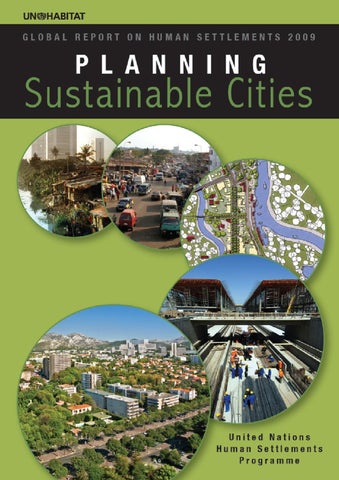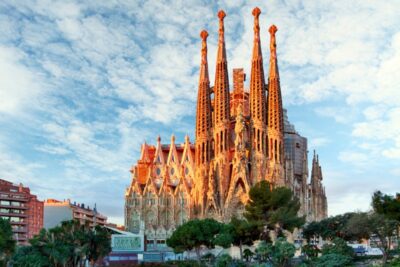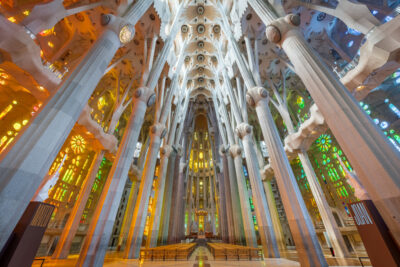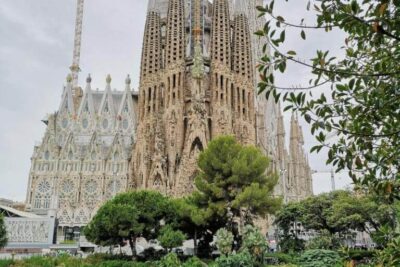
- Understanding the Concept of Barrio Reservations in Urban Areas
- The Role of Barrio Reservations in Preserving Cultural Heritage
- Impact of Barrio Reservations on Urban Community Development
- Challenges Faced by Barrio Reservations in Modern Cities
- Exploring the Socioeconomic Effects of Barrio Reservations
- Policy Implications of Barrio Reservations for Urban Planning
The concept of barrio reservations plays a critical role in shaping the social and economic landscapes of urban communities. These designated areas often represent the cultural identity and heritage of marginalized groups, providing a space for community cohesion amid urbanization's challenges.
In exploring the dynamics of these neighborhoods, it becomes essential to delve into the nuances of their existence. **Understanding Barrio Reservations and Their Impact on Urban Communities** requires an examination of both the advantages and obstacles they present, influencing everything from housing policies to local economies.
Understanding the Concept of Barrio Reservations in Urban Areas
The concept of barrio reservations is multi-faceted, reflecting a blend of cultural preservation, economic opportunities, and social challenges. These areas serve as a vital link to the heritage of local communities, fostering a sense of belonging and identity among residents. Notably, barrio reservations can contribute to urban diversity by acting as hubs for cultural exchange and innovation.
In urban settings, barrio reservations often face a unique set of challenges that can impact their sustainability. Issues such as gentrification, inadequate infrastructure, and limited access to resources can undermine the very essence of these neighborhoods. Addressing these challenges requires a comprehensive understanding of the local context, including:
- Economic pressures from surrounding areas
- Policy implications affecting housing and zoning
- Community engagement in decision-making processes
Furthermore, the social fabric of barrio reservations is enriched by their role as safe spaces for marginalized groups. These neighborhoods often provide essential support networks, enabling residents to navigate the complexities of urban life. The resilience of these communities can be attributed to:
- Local initiatives that promote cultural events and education
- Collaborative efforts to improve public safety and services
- Partnerships with NGOs and governmental organizations
Ultimately, understanding barrio reservations in urban areas involves recognizing their contributions to both local and broader urban ecosystems. By appreciating the interplay between cultural identity and urban development, stakeholders can work towards creating policies that uplift these communities while preserving their unique character.
The Role of Barrio Reservations in Preserving Cultural Heritage
Barrio reservations play a fundamental role in preserving cultural heritage by acting as custodians of traditions, languages, and practices that are often at risk of fading away in urban environments. These neighborhoods serve as vibrant centers where local customs can thrive, allowing residents to maintain a strong connection to their roots. Cultural festivals, culinary traditions, and artistic expressions are routinely celebrated within these communities, reinforcing a collective identity.
Moreover, the presence of barrio reservations fosters intergenerational knowledge transfer, which is crucial for the survival of cultural practices. Elders within these neighborhoods often take on the role of educators, sharing stories and skills with younger generations. This exchange helps to cultivate a sense of pride and continuity, ensuring that heritage is not merely preserved but actively lived and experienced.
 Explore Casa Batlló: Must-See Entries for 40-60-Year-Olds in Barcelona
Explore Casa Batlló: Must-See Entries for 40-60-Year-Olds in BarcelonaKey elements that highlight the role of barrio reservations in cultural preservation include:
- Community Events: Regular cultural events serve to engage residents and celebrate their heritage.
- Art and Expression: Local artists often use their work to reflect cultural narratives, reinforcing identity.
- Language Preservation: Initiatives to promote native languages can help sustain linguistic diversity.
In essence, barrio reservations are more than geographical spaces; they are vital cultural landscapes that nurture the identity and heritage of their communities. By providing a framework for cultural continuity, these neighborhoods contribute significantly to the richness of urban diversity, making them indispensable in the broader context of urban development.
Impact of Barrio Reservations on Urban Community Development
Barrio reservations significantly impact urban community development by fostering economic opportunities tailored to local needs. These areas can serve as incubators for small businesses, allowing entrepreneurs to thrive in an environment that celebrates their cultural identity. By leveraging resources within the community, they can enhance local economies through:
- Support for minority-owned businesses
- Job creation through community initiatives
- Access to micro-financing and local investment
Moreover, the presence of barrio reservations can mitigate social disparities often seen in urban settings. By providing spaces for collective action and community organizing, these neighborhoods empower residents to advocate for their rights and access to essential services. The resulting social cohesion can lead to positive outcomes such as:
- Improved educational resources for children
- Enhanced public safety through community watch programs
- Stronger networks for health and social services
In addition to economic and social benefits, barrio reservations play a crucial role in environmental sustainability. They often prioritize green spaces and community gardens, promoting ecological awareness among residents. These initiatives can enhance urban biodiversity and contribute to a healthier living environment by:
- Providing access to fresh produce
- Encouraging sustainable practices
- Creating recreational spaces for families
Ultimately, the impact of barrio reservations on urban community development extends beyond mere economic aspects; they foster holistic growth that enriches the social, cultural, and environmental dimensions of urban life. Understanding these influences enables policymakers and community leaders to create more inclusive urban landscapes that respect and nurture the unique identities of their residents.
Challenges Faced by Barrio Reservations in Modern Cities
Barrio reservations in modern cities encounter a myriad of challenges that threaten their sustainability and cultural integrity. One prominent challenge is **gentrification**, which often leads to increased property values and displacement of long-term residents. This economic pressure can erode the cultural fabric of these neighborhoods, pushing out the very communities they were intended to protect. Residents may find it increasingly difficult to afford housing, leading to a loss of social cohesion and community identity.
Another significant challenge faced by barrio reservations is the lack of adequate infrastructure and essential services. Many of these neighborhoods struggle with limited access to public transportation, healthcare, and educational facilities. This disparity can hinder residents' quality of life and limit their opportunities for economic advancement. Additionally, insufficient public investment in these areas often results in deteriorating conditions, further marginalizing the communities.
 Discover the Best Places to Explore in Barcelona
Discover the Best Places to Explore in BarcelonaMoreover, socioeconomic factors such as unemployment and underemployment pose persistent challenges. Many residents of barrio reservations face barriers to accessing job opportunities due to a lack of skills training and educational resources. This situation can perpetuate cycles of poverty and inhibit community development. To combat these issues, it is crucial for stakeholders to prioritize:
- Investment in education and job training programs
- Policy reforms that protect affordable housing
- Community-led initiatives that foster economic growth
Finally, political marginalization can exacerbate the challenges faced by barrio reservations. Often, the voices of these communities are overlooked in decision-making processes, leading to policies that do not reflect their needs or aspirations. Ensuring that residents are actively involved in governance is essential for fostering resilience and sustainability within these neighborhoods. By promoting inclusive practices, communities can better advocate for their rights and access vital resources.
Exploring the Socioeconomic Effects of Barrio Reservations
The socioeconomic effects of barrio reservations can be profound, as they often serve as a lifeline for marginalized communities striving for economic stability. These designated areas provide opportunities for local entrepreneurship, enabling residents to establish businesses that reflect their cultural identity. This localized economic activity can help reduce unemployment rates and enhance the overall resilience of the community by:
- Encouraging the establishment of family-owned businesses
- Facilitating access to markets tailored to community needs
- Promoting cultural tourism that attracts visitors
Additionally, barrio reservations play a significant role in fostering educational advancement within urban environments. By establishing community centers that focus on education and skill development, these neighborhoods can address disparities faced by their residents. Programs aimed at youth and adult education can lead to improved job prospects and higher levels of community engagement, contributing to a more informed and capable populace. Key benefits include:
- Increased high school graduation rates
- Access to vocational training and certification programs
- Strengthened community ties through collaborative learning initiatives
Another vital aspect of barrio reservations is their impact on public health and wellness. These neighborhoods often prioritize the establishment of local health initiatives that address specific community needs, which can significantly improve health outcomes. By fostering partnerships with health organizations, barrio reservations can create programs that focus on preventive care, mental health support, and nutrition education. This holistic approach is essential for promoting:
- Access to affordable healthcare services
- Health literacy among residents
- Community-led wellness initiatives that encourage healthy lifestyles
Ultimately, the socioeconomic effects of barrio reservations extend beyond their immediate communities, influencing broader urban dynamics. By serving as engines of economic activity, education, and health, these areas contribute to the overall vitality of cities, making it crucial for policymakers to recognize and support their unique needs. This understanding can pave the way for sustainable urban development that honors the cultural identities and aspirations of all residents.
Policy Implications of Barrio Reservations for Urban Planning
The policy implications of barrio reservations for urban planning are profound, as they necessitate a comprehensive approach to foster equity and inclusion. Urban planners must consider the unique needs of these communities, ensuring that policies promote sustainable development without compromising cultural integrity. Key considerations for policymakers include:
- Integration of Community Input: Actively involving residents in the planning process helps align development goals with the community's vision.
- Affordable Housing Initiatives: Implementing policies that protect against displacement is crucial for maintaining the cultural fabric of barrio reservations.
- Investment in Infrastructure: Enhancing public services and transportation options directly impacts the quality of life for residents.
Furthermore, the creation of supportive policies can empower barrio reservations to thrive as economic hubs. By fostering local entrepreneurship and supporting minority-owned businesses, urban planning can leverage the rich cultural identities within these neighborhoods. This approach not only stimulates local economies but also enhances community resilience through:
 Ownership of Casa Batlló
Ownership of Casa Batlló- Access to Capital: Providing microloans and grants tailored for local businesses encourages economic growth.
- Business Development Programs: Training and mentorship initiatives can help entrepreneurs navigate challenges and succeed.
- Cultural Tourism Development: Promoting these neighborhoods as tourist destinations can generate revenue while preserving community heritage.
In addressing social disparities, urban planning policies must also recognize the critical function of barrio reservations in promoting social cohesion. Policies that support education, healthcare, and public safety can significantly enhance the well-being of residents. Essential strategies include:
- Community Engagement in Health Services: Collaborating with local health providers to ensure accessible care tailored to specific community needs.
- Educational Partnerships: Establishing connections between local schools and community organizations to enhance educational opportunities.
- Public Safety Initiatives: Prioritizing community-led safety programs that foster trust and cooperation among residents.
Ultimately, the implications of policies surrounding barrio reservations highlight the need for a holistic approach to urban planning. By recognizing and addressing the unique challenges and strengths of these communities, planners can create inclusive environments that celebrate cultural diversity while promoting sustainable urban development.
If you want to know other articles similar to Understanding Barrio Reservations and Their Impact on Urban Communities you can visit the category WHERE YOU CAN GO.
Deja una respuesta










Read more!